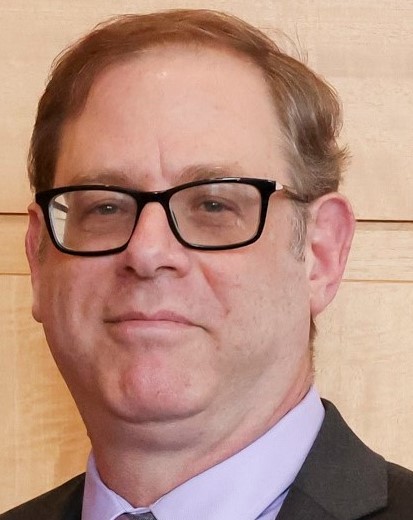Academic Lineage
I can trace my academic lineage (through dissertation advisors) back to Otto
Mencken in the 1600's. This may sound like a lot of work, but all I had to do
was to link myself to my advisor, Haym Hirsh, who had already determined his
academic lineage (this is a good example of exploiting recursion, I suppose).
Then came the
Mathematics Genealogy
Project, which has its own tree of academic lineage. The
lineage they
provide for me is similar to the one shown below (researched by Hirsh) at
the start, but they provide more dual advisors and one of the additional
paths yields Poisson, Lagrange, Euler, Bernoulli and Leibniz as my academic
ancestors. Not too shabby. And yes-- that project considers computer
scientists to be mathematicians. It looks like everyone wants to get into
the genealogy field, since there is now also an
Artificial Intelligence Genealogy
Project in which
I am listed.
(On a related topic:
my Erdös number is 2:
Paul Erdös to
Frank Hsu to
Gary Weiss)
- My advisor: Haym Hirsh
(Ph.D. Computer Science, Stanford University, 1989: "Incremental Version Space Merging: A General Framework for Concept Learning")
- Hirsh's advisor: Bruce Buchanan
(b. July 7, 1940, St. Louis)
(Ph.D. Philosophy, Michigan State University, 1966: "Logics of Scientific Discovery")
- Buchanan's advisor: Gerald Massey
(b. Feb 11, 1934, Wauseon, Ohio)
(Ph.D. Philosophy, Princeton University, 1964: "The Philosophy of Space ")
- Massey's advisor: Carl Gustav
Hempel
(b. Jan. 8, 1905, Oranienburg, Germany; d. 1997, Princeton,
NJ)
(Philosophy, Berlin, 1934: "Beitrage zur logischen analyse des
wahrscheinlichkeitsbegriffs")
(Hempel worked with Reichenbach until
Reichenbach was forced to leave Germany in 1933; his final year at
Erlangen was spent under the supervision of Wolfgang Kohler and
Nicolai Hartmann.)
- Hempel's advisor: Hans
Reichenbach
(b. Sept. 26, 1891, Hamburg, Germany; d. April 9,
1953, Los Angeles, CA)
(Philosophy, Erlangen, 1915: "Der Begriff der
Wahrscheinlichkeit fur die mathematische Darstellung der Wirklichkeit")
- Reichenbach's two advisors:
- Paul Hensel
(Dr. phil., Albert-Ludwigs-Universitat Freiburg, 1885:
"Uber die Beziehung des reinen Ich bei Fichte zur Einheit der
Apperception bei Kant")
Please email me if you know anything about him
- Max Noether
(b. September 24, 1844, Mannheim, Baden, Germany; d. December 13,
1921, Erlangen, Germany)
(Dr. phil. Ruprecht-Karls-Universitat Heidelberg, 1868)
Based on information from Hans Reichenbach's widow, I had previously
listed the second advisor as Emmy Noether. I've recently learned that
this did not match up with Reichenbach's dissertation's signature
page, which has Max Noether's signature.
- Noether's two advisors:
- Ludwig
Otto Hesse
(b. April 22, 1811, Kvnigsberg, Germany (now Kaliningrad, Russia);
d. August 4, 1874, Munich, Germany)
(Dr. phil. Universitat Kvnigsberg 1840)
- Gustav
Robert Kirchhoff
(b. March 12, 1824, Kvnigsberg, Prussia (now Kaliningrad, Russia);
d. October 17, 1887, Berlin, Germany)
(Dr. phil. Universitat Konigsberg 1847: "De criteriis quibus cognoscatur
an aequatio quinti gradus irreductibilis algebraice resolvi posset /
De parallaxi stellae Argelandriae")
Kirchhoff's advisor was also
Otto Hesse
- Hesse's advisor:
Karl Gustav Jacob Jacobi
(b. December 10, 1804, Potsdam, Prussia; d. February 18, 1851, Berlin, Germany)
(Ph.D. Humboldt-Universitat zu Berlin, 1825: "Disquisitiones
Analyticae de Fractionibus Simplicibus")
- Jacobi's advisor:
Enno Heeren Dirksen
(Ph.D. Georg-August-Universitat Gottingen, 1820: "Historiae progressuum instrumentorum mensurae angulorum accuratiori
interserventium inde a Tob. Meyeri temporibus ad umbratione non de
artificio multiplicationis")
- His two advisors:
- Friedrich Anton Justus Thibaut
(b. January 4, 1772, Hameln, Hanover; d. March 28, 1840, Heidelberg)
(Dr. phil. Christian-Albrechts-Universitat zu Kiel, 1796:
"De genuina iuris personarum et rerum indole, veroque
huius divisionis pretio")
(Advisor unknown)
- Johann Tobias Meyer d.J.
(b. February 17, 1723, Marbach, Wurttemberg, Germany; d. February 20, 1762, Gottingen, Germany)
(Ph.D. Georg-August-Universitat Gottingen, 1773: "Tetragonometriae specimen I")
- Meyer's advisor: Abraham
Gotthelf Kaestner
(b. Sept 27, 1719, Leipzig, Germany; d. June 20,
1800, in Gottingen, Germany)
(Ph.D. Universitat Leipzig, 1739: "Theoria radicum in aequationibus")
- Kaestner's advisor: Christian A. Hausen
(b. 1693, d. 1743)
(Dr. phil. Martin-Luther-Universitat Halle-Wittenberg 1713: "De
corpore scissuris figurisque non cruetando ductu")
-
To go further back you should continue with
Hausen's entry at
the Mathematics Genealogy Project, which goes back to
Copernicus and into the 1300s.
|
